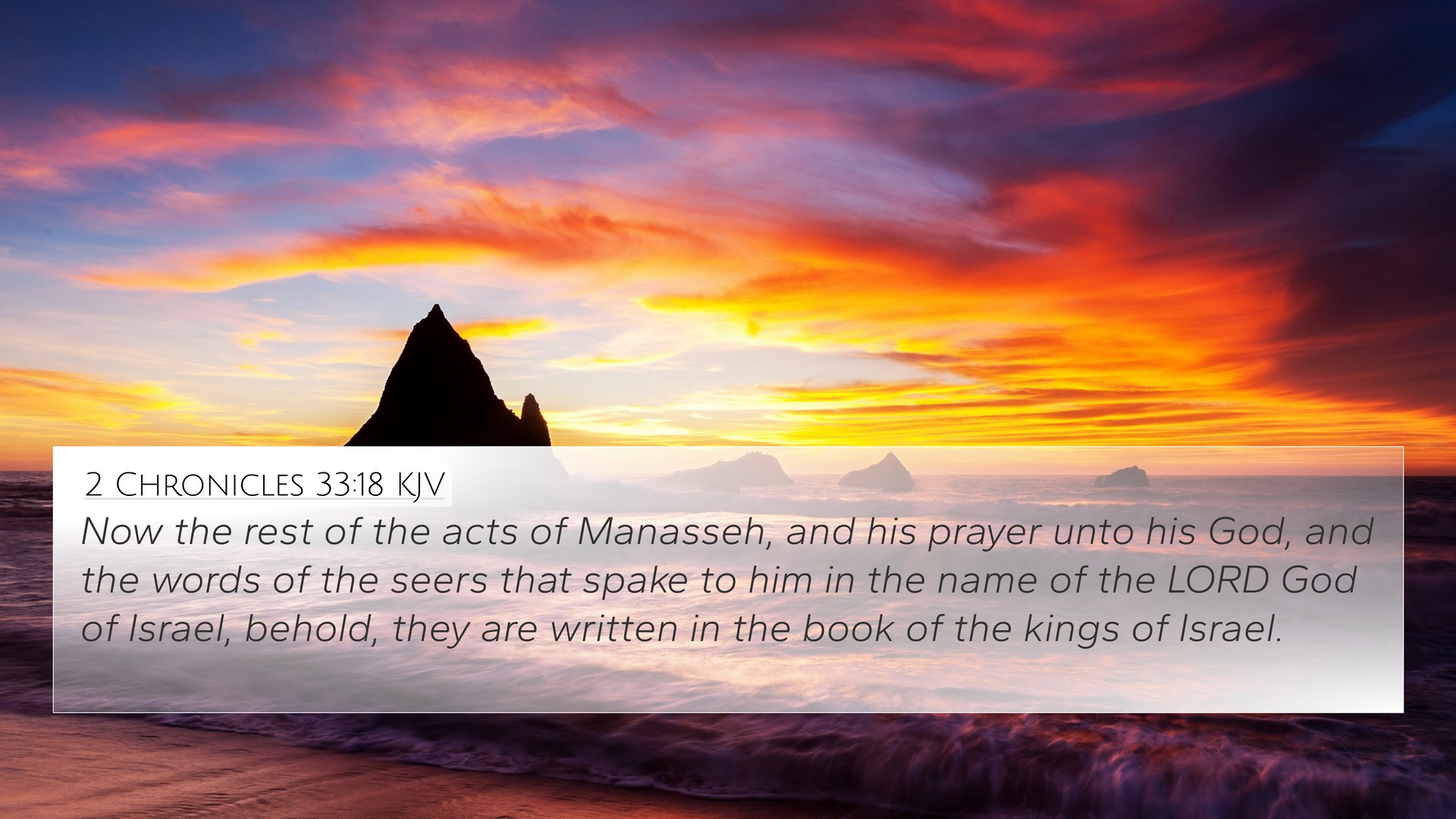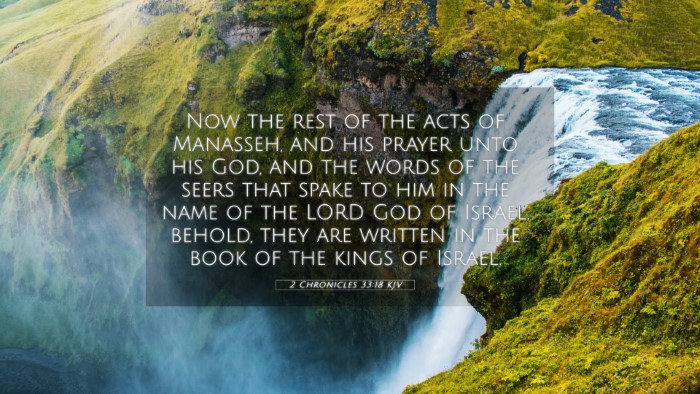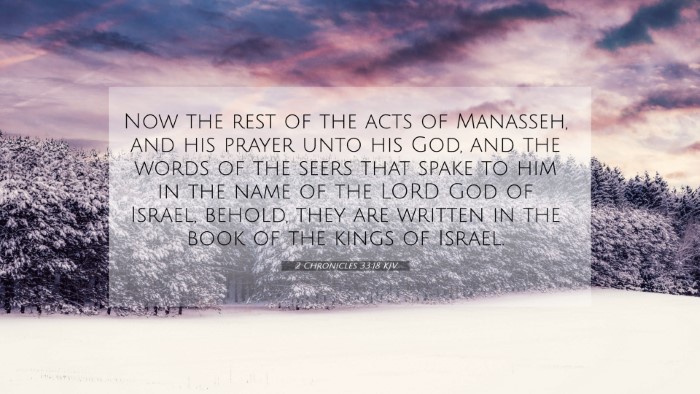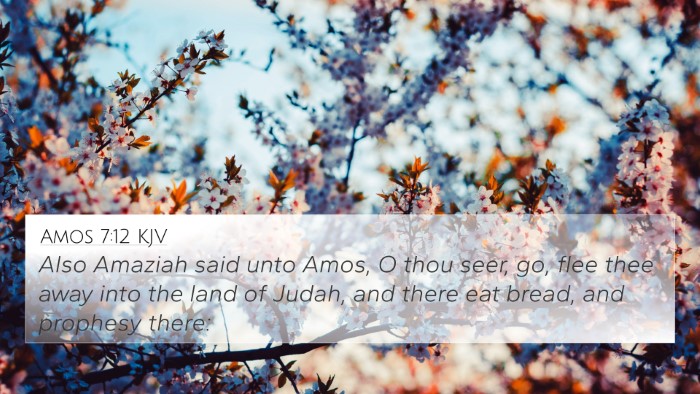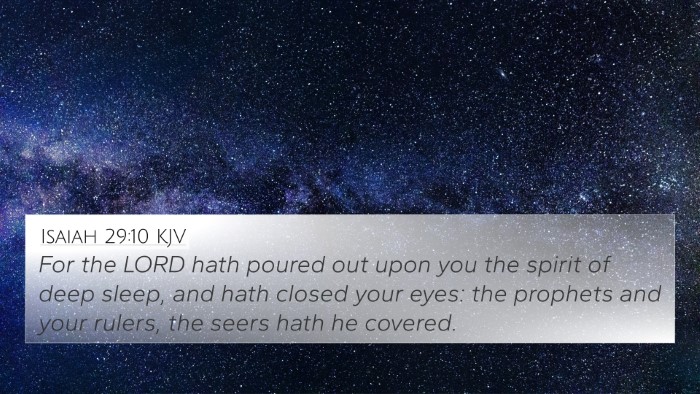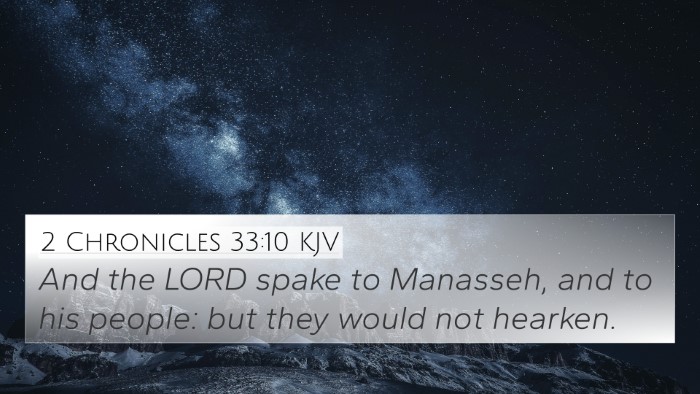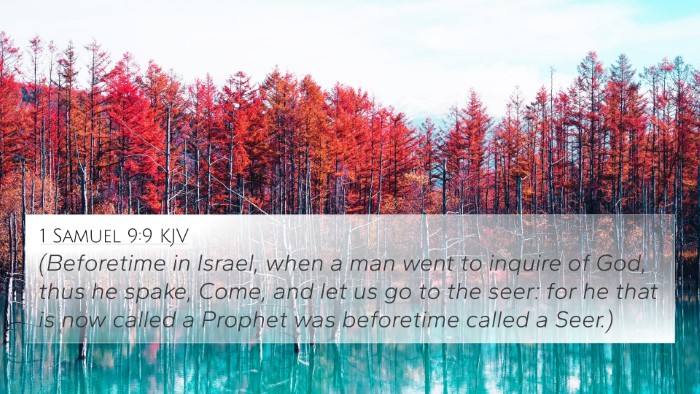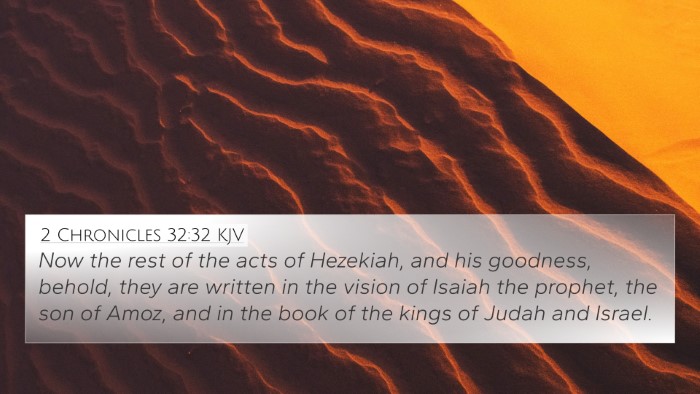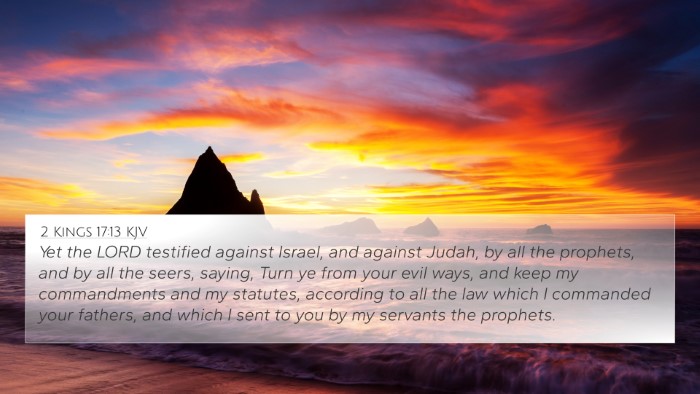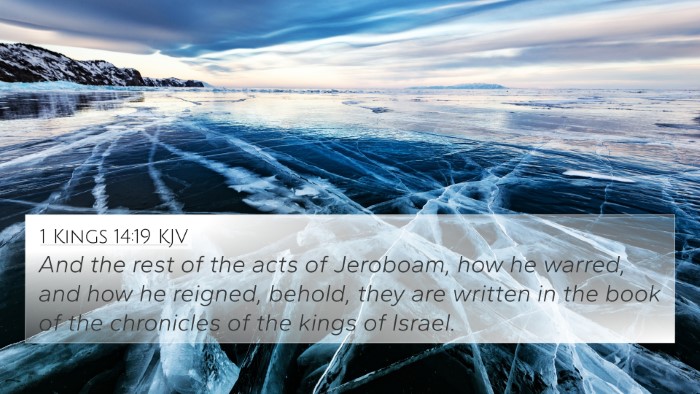Understanding 2 Chronicles 33:18
Verse Reference: 2 Chronicles 33:18 - "Now the rest of the acts of Manasseh, and his prayer unto his God, and the words of the seers that spake to him in the name of the LORD God of Israel, behold, they are written in the Book of the Kings of Israel."
Summary of the Verse
The verse discusses the reign of King Manasseh of Judah, highlighting his acts, his heartfelt prayer to God, and the prophetic warnings he received. It emphasizes that these details are found in another historical account, suggesting a significant but perhaps overlooked story of transformation and repentance.
Insights from Public Domain Commentaries
Matthew Henry
Henry reflects on the gravity of Manasseh's earlier actions, which were sinful and idolatrous. However, Henry emphasizes that even a ruler's deep repentance and plea for divine mercy can lead to restoration. The mention of his prayer reminds believers of the power of seeking God, irrespective of prior failures.
Albert Barnes
Barnes notes the significance of private prayers and how they are documented here. He implies that Manasseh's transformation is not just a personal journey but a lesson in humility and the possibility of redemption. This reinforces the belief that God hears and responds to genuine repentance.
Adam Clarke
Clarke speaks to the broader context and historical records that inform this passage. He highlights the importance of the "Book of the Kings" as additional scripture, connecting the narratives of kings with prophetic wisdom. Clarke also mentions the role of seers and the necessity of hearing God's warnings, which underscores a central biblical theme of accountability.
Connections to Other Scriptures
This verse relates to several others that explore themes of repentance, prayer, and God's mercy. Below are key connections that enhance understanding:
- 2 Kings 21:10-16 - This passage records Manasseh’s sins in detail, reinforcing the transformation he underwent.
- 2 Chronicles 7:14 - Highlights the promise of God to hear the prayers of those who humble themselves.
- Psalm 51:17 - Suggests that God values a broken and contrite heart, a condition reflective of Manasseh's repentance.
- Jeremiah 29:12-13 - Speaks to God's responsiveness to those who seek Him with a sincere heart.
- Luke 23:39-43 - The story of the repentant thief on the cross exemplifies immediate divine acceptance following repentance.
- Acts 3:19 - Peter’s call for repentance aligns with the message of this passage, showing that transformation is always possible.
- 1 John 1:9 - Emphasizes the assurance of forgiveness for those who confess their sins.
Thematic Connections
This verse evokes several themes prevalent throughout the Bible:
- Repentance and Forgiveness: Manasseh's prayer illustrates that true repentance is critical for reconciliation with God.
- Power of Prayer: The acknowledgment of Manasseh's prayer serves as a reminder that sincere prayer reaches God's ears.
- Prophetic Warnings: The involvement of seers showcases the importance of listening to God’s messengers and adhering to His Word.
- Cataloging History: The mention of the “Book of the Kings” reflects the importance of documenting spiritual narratives for future generations.
Application for Today
The lessons from 2 Chronicles 33:18 are timeless and relevant for modern believers:
- The Importance of Repentance: Everyone can find redemption through sincere turning to God, no matter their past.
- Listening to God's Voice: Encourages believers to value the words of spiritual leaders and scripture.
- Prayer as a Tool for Change: Engaging in genuine prayer can radically transform one’s spiritual life.
- Historical Awareness: Understanding past struggles and faith journeys encourages unity and faith within the church community.
Conclusion
2 Chronicles 33:18 is a powerful testament to the hope found in repentance and the merciful response of God to those who earnestly seek Him. It culminates in a broader theme of redemption threaded throughout the scriptures, providing believers with a framework for understanding God's boundless grace.
